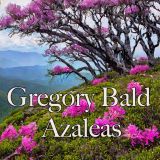Ginseng Harvesting. Ginseng; miracle plant? Fact or fiction? There are many uses for this fascinating native plant that grows wild and randomly from forests in Mississippi, across the eastern mountains of the United States to the remote areas of China. Ginseng refers to 11 different varieties of a short, slow-growing plant with fleshy roots. One of the most enduring of the herbal remedies, it is believed by many to restore and enhance well being.
American Ginseng (Panax quinquefolius, L. ) is easily overlooked blending in readily with other plants, such as poison oak. It begins as a single stem in spring and then adds a flush of leaves that are later adorned by lipstick red berries that appear and last just a week in mid-summer. Below ground the root (actually a rhizome) grows at a snail’s pace, adding wrinkles much like a tree adds rings. It is the root, and it’s monetary value, that has lured people for decades to search for the elusive tuber. The location of many “secret” Ginseng spots is often passed from generation to generation, but that could soon be a thing of the past as ginseng is at risk due to over harvesting and loss of habitat.
The Cherokees speak of the plant as a sentient being….able tomake itself invisible to those unworthy to gather it.-William Bartram, naturalist, Philadelphia, 1781.
Asian ginseng has been used for more than two centuries for it’s health benefits.
Asian ginseng (P. Ginseng) , native to the Far East, has been used for health-related purposes for more than 2,000 years. In traditional Chinese medicine, Asian ginseng (Known as “The Divine Herb” or “the King of Herbs”) was used as a tonic to replenish energy. Today, Asian ginseng is used as a dietary supplement to improve general well-being, stimulate physical stamina, concentration and the immune function. Some believe the plant slows the aging process and relieves respiratory and cardiovascular disorders. It is also used to treat depression, anxiety, erectile dysfunction and menopausal hot flashes.
Ginseng is now included in many health-related products that are offered for sale in herbal and health food stores. Does it work? As the old saying goes “Ya won’t know until you try it.”
Ginseng harvest permit season occurs in late spring in North Carolina. Permits are required for the popular ginseng harvest in the Natahala and Pisgah National Forests in North Carolina. Searching for the elusive plant can be profitable. According to Forest Service botanist Gary Kauffman, ginseng brought $600-$900 a dry pound last year, adding that it takes 300 plants to make a dry pound. Permits are awarded by lottery and are issued in August.
The harvest season for wild ginseng in Tennessee is August 15-December 31. The following laws apply to the foraging of this amazing plant that some believe can be used to boost energy, lower blood sugar and cholesterol levels, reduce stress, promote relaxation, treat diabetes, and manage sexual dysfunction in men. Yet American doctors still debate about whether ginseng does any of these things. The argument ranges from whether the plant actually boosts the body’s vital energy, merely acts as a mild tonic and antioxidant, or is an out and out fraud.
Tennessee ginseng laws and regulations regarding harvest of wild ginseng:
No license is required to dig wild ginseng on private land in Tennessee, but the landowner’s permission must be obtained.
A Ginseng Dealer Permit is required to buy ginseng harvested in Tennessee for sale or to transport across state lines.
No ginseng may leave the state of Tennessee without an export certificate
The harvest season for wild ginseng in Tennessee is August-December 31.
Tennessee state law prohibits the harvest of any wild ginseng plant for sale or export that has green berries or less than 3 prongs.
Tennessee requires that seeds of collected wild ginseng be planted immediately in the approximate location where the plants are harvested.
Most state lands are closed to harvesting ginseng, INCLUDING all state parks, natural areas, state forests, and nearly all wildlife management areas. Collecting ginseng on state lands that are closed to harvesting is illegal and carries penalties and fines.

Rendering of ginseng by artist and HeySmokies trail guide Jimmy Fike.
Related













